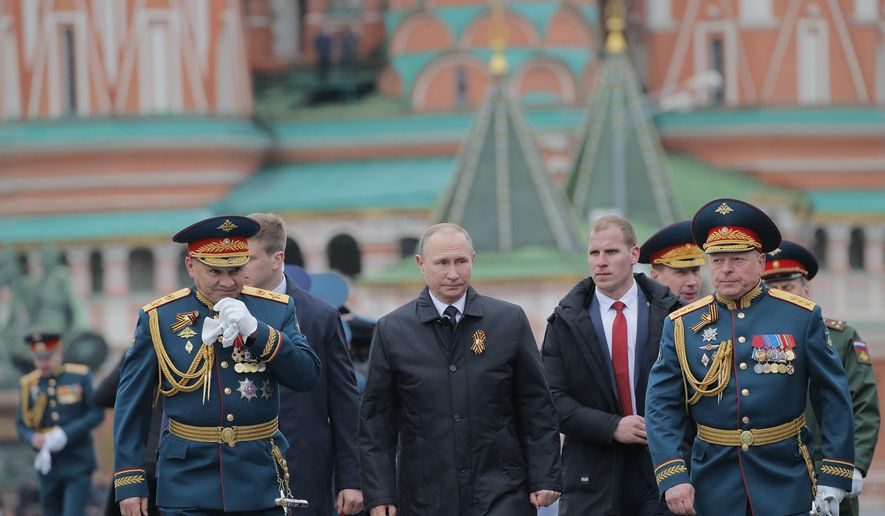The Kremlin plans to stage its biggest war games in nearly four decades with a massive military exercise next month to include the Chinese and Mongolian armies at a moment of simmering tension between Russia and the West.
Russian Defense Minister Sergei Shoigu said Tuesday that the exercise, dubbed “Vostok-2018 (East-2018),” will play out at military ranges in central and eastern Russia and involve almost 300,000 troops, over 1,000 military aircraft, two Russian naval fleets, and all of Russia’s airborne units.
“Imagine 36,000 pieces of military equipment moving together at the same time — tanks, armored personnel carriers, infantry fighting vehicles,” Mr. Shoigu said in a statement. “And all of this, of course, in conditions as close to combat as possible.”
The announcement came against a backdrop of ongoing strain between Russia and the U.S.-aligned NATO alliance, who’s tension with Moscow has been escalating ever since Russian forces annexed Ukraine’s Crimean peninsula in 2014.
In the wake of the annexation, NATO forces increased their presence across various corners of eastern Europe to deter further Russian military provocations. The Kremlin has sharply denounced the NATO posturing as an unjustified troop build-up along its western flank.
NATO officials showed no surprise at Russia’s impending war games announcement. Dylan White, a spokesman for the alliance, was quoted Tuesday as saying Russia actually briefed NATO officials in May on the planned Vostok-2018 exercise and even invited them to send military attaches to observe the war games.
“Vostok demonstrates Russia’s focus on exercising large-scale conflict,” said Mr. White. “It fits into a pattern we have seen over some time: a more assertive Russia, significantly increasing its defense budget and its military presence.”
He added that while NATO was preparing to monitor Vostok-2018, the alliance was still considering the invitation to send observers.
“All nations have the right to exercise their armed forces, but it is essential that this is done in a transparent and predictable manner,” Mr. White said a statement e-mailed to Reuters.
Mr. Shoigu, who was widely quoted across multiple Russian news agencies, compared the war games to a Soviet maneuver in 1981 named Zapad-81 (West-81), which involved a pretend attack on NATO.
The Vostok-2018 games, the Russian defense minister said, will occur from the 11th through the 15th of September. “In some ways they will repeat aspects of Zapad-81, but in other ways the scale will be bigger,” he told reporters while visiting the Russian region of Khakassia, according to Russian media.
Kremlin spokesman Dmitry Peskov was asked by Russian journalists if the cost of such a massive military exercise was justified given the rising spending on social programs across the country.
“The country’s ability to defend itself in the current international situation, which is often aggressive and unfriendly towards our country, means [the exercise] is justified and essential,” Mr. Peskov said on a conference call.
Military analysts have suggested that in addition to NATO concerns, Japan could be worried by the games, given recent complaints from Tokyo over what it says is a Russian military build-up in the Far East nearby the strategically crucial Russian port of Vladivostok.
As for China, Beijing plans to send 3,200 troops and about 900 weapons units for the exercises, the state Xinhua news agency reported.
Earlier this year saw Washington exclude China from the world’s largest naval war games — the 2018 Rim of the Pacific (RIMPAC) exercises — an annual set of exercises held in the Pacific that regularly includes more than two dozen nations.
U.S. officials said Chinese forces would not be invited because of Beijing’s continued militarization of the South China Sea.
Russia’s largest war game last year was held jointly with Belarus and involved only about 12,700 troops, according to the Russian state news agency TASS.
• Dan Boylan can be reached at dboylan@washingtontimes.com.




Please read our comment policy before commenting.